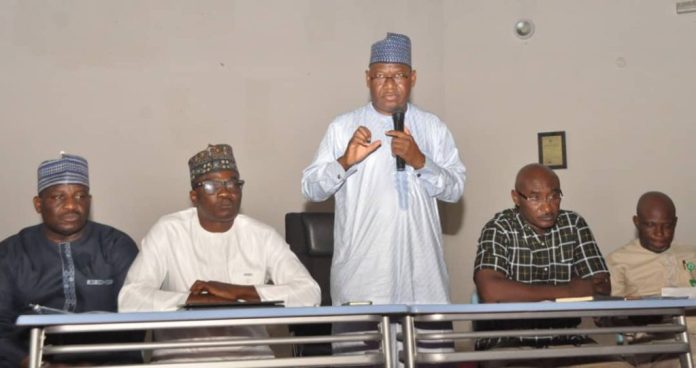The Nigerian College of Aviation Technology (NCAT), Zaria, is undergoing a major transformation to close critical training gaps, modernise infrastructure, and align with global sustainability standards.
At the 2025 Training Course of the League of Airports & Aviation Correspondents (LAAC), NCAT’s Rector and Chief Executive Officer, Dr. Danjuma Adamu Ismaila, unveiled strategic initiatives designed to reposition the college as a leading aviation training hub in Africa.
Upon assumption of office, Dr. Ismaila noted significant gaps in NCAT’s training offerings. “Some aviation professions were not being fully catered to. Our goal is to close those gaps so professionals no longer seek training abroad,” he said.
With over 200 programmes on offer, NCAT currently trains personnel for major aviation agencies such as the NCAA, FAAN, and NAMA. The College also recently graduated 23 French-speaking air traffic controllers who studied aviation English—an achievement Dr. Ismaila believes deserves more visibility.
To address student housing constraints, NCAT has commenced the construction of a 150-room hostel block. This expansion will allow more training programmes to run concurrently, reducing the need for off-campus accommodation.
“Right now, we have only about 120 rooms. With this new development, we’ll be able to accommodate and train more students across various aviation disciplines,” Dr. Ismaila stated.
In line with global safety requirements, NCAT has acquired a Boeing 737 full flight simulator and is finalising plans to procure an ERJ-145 simulator—the second most flown aircraft in Nigeria. These additions will enable recurrent training for pilots locally and reduce the financial burden on airlines.
“Pilots must undergo simulator training every six months. With these simulators, airlines no longer need to send personnel abroad, saving costs and foreign exchange,” said the Rector.
NCAT has also adopted a decarbonisation policy in line with ICAO and UN directives. The College is exploring a switch to cleaner energy sources and converting vehicles to compressed natural gas (CNG).
“These steps won’t just help the environment—they’ll also open up opportunities through carbon credits,” he noted.
The Rector acknowledged the need for greater media engagement, calling on aviation journalists to highlight NCAT’s progress and hold it accountable.
In his remarks, LAAC Chairman, Mr. Idris Suleiman, praised NCAT’s impact on aviation training and urged continued stakeholder commitment to sector growth.
“The global aviation industry is evolving. For Nigeria to thrive, institutions like NCAT must continue receiving support. We pledge LAAC’s commitment to helping NCAT assert its rightful place in the global training market,” he said.
Suleiman commended the college’s visible improvements but stressed the need for sustained investment and collaboration to elevate Nigeria’s aviation standards.













